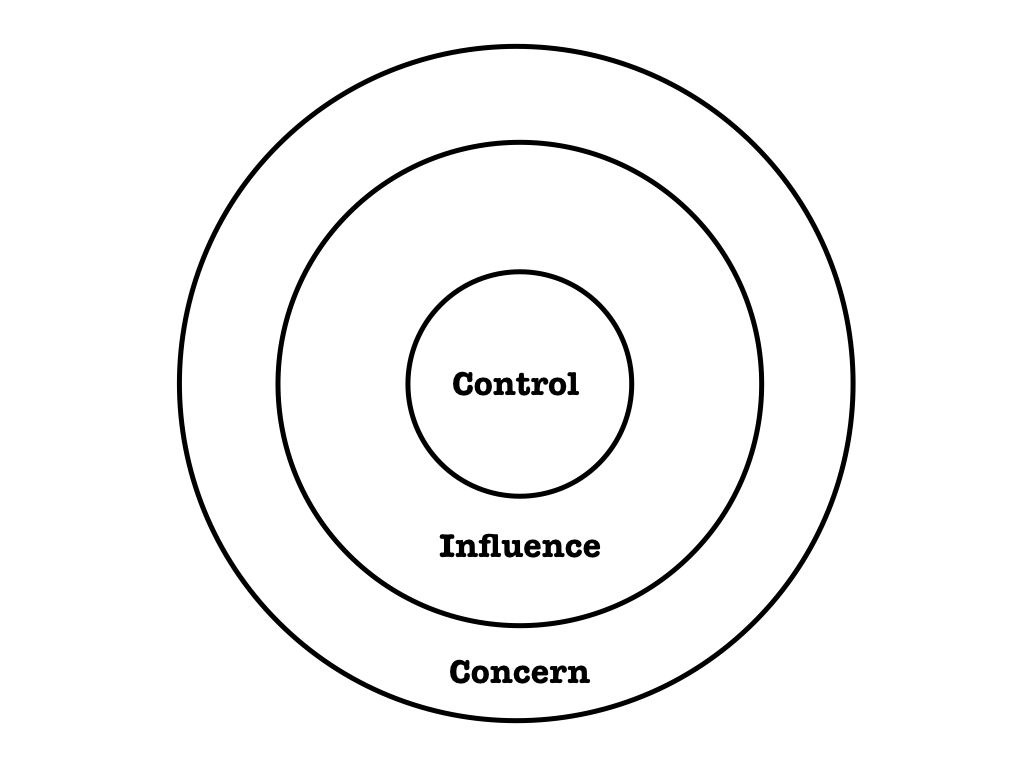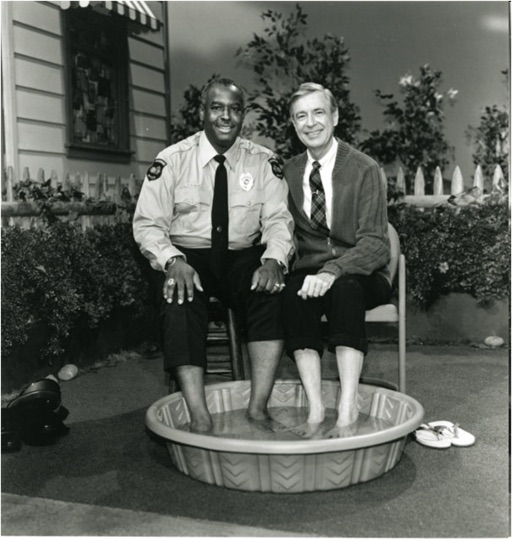I was reminded recently of a helpful distinction Stephen Covey made in The 7 Habits of Highly Effective People, which I’ve recreated below:

In the universe of our cares, there are things we can control, things we can influence, and things that concern us, but which we can’t do anything about. Common sense suggests that our energy, creativity, and time is best spent on the innermost circle, with effort applied to the middle circle as interest and opportunity allow.
It suggests we bring order to the little parts of the world we control. That we make beauty and peace where we can.
The challenge is that in stressful times, our emotional energy gets drawn to the outer circle. The things we can’t control start to dominate our thoughts. In the present crisis that’s obvious: people worry for their jobs and financial assets. They worry people they love will get sick. They fear needing a ventilator themselves.
And to compound the cruelty, our obsession with what we can’t control prevents us from doing what’s needed in the domains we can control. We begin to fail our colleagues, our friends, our families. When we dwell on the things we can’t control, we become our worst selves.
The good news is that we can control how much we obsess over what we can’t control. We can govern our thoughts. We can restrict how often we check the news or our investments. We can dial into the lives of our children, of our friends, of strangers who need us now more than ever. We can fill the hours with so much labor in that center circle that we simply don’t have time or energy to fret over what isn’t ours to decide anyway.
All it takes is intention, and a plan. Commit to refocus on what you can control. Turn off the TV. Spend less time on the internet. Calendar more time with your children. You can control how much you worry over what you can’t control. And the first step is committing to do it.



